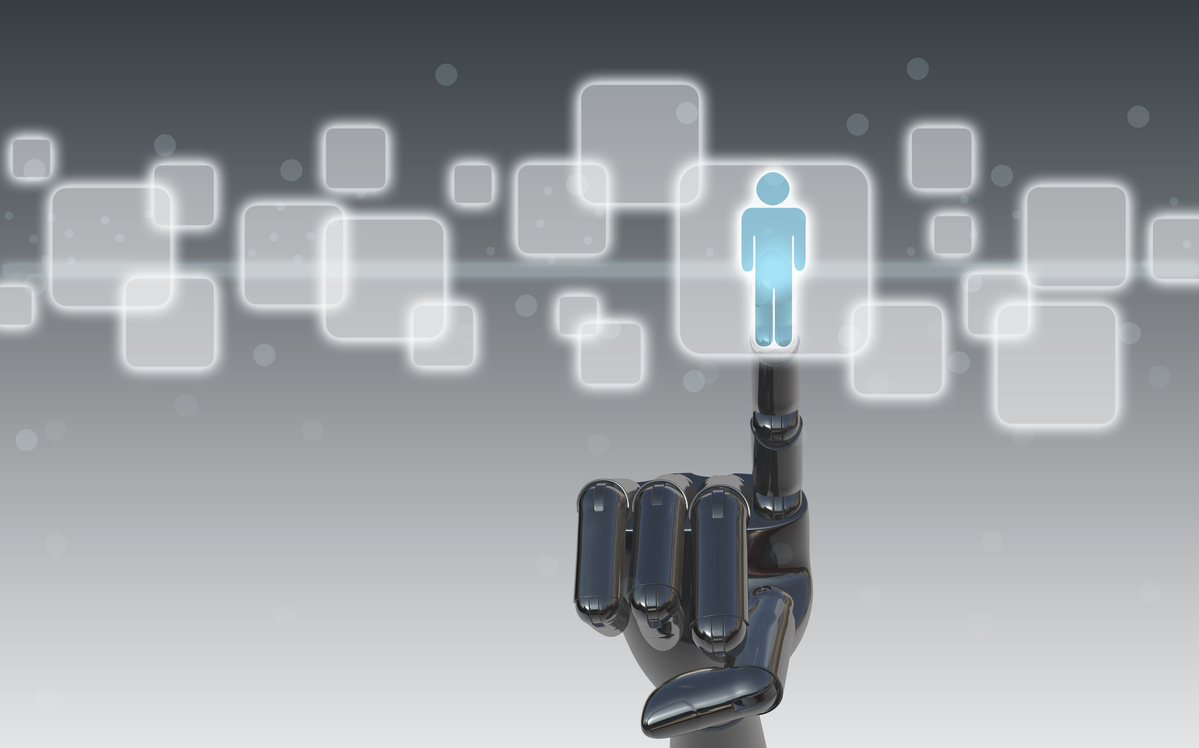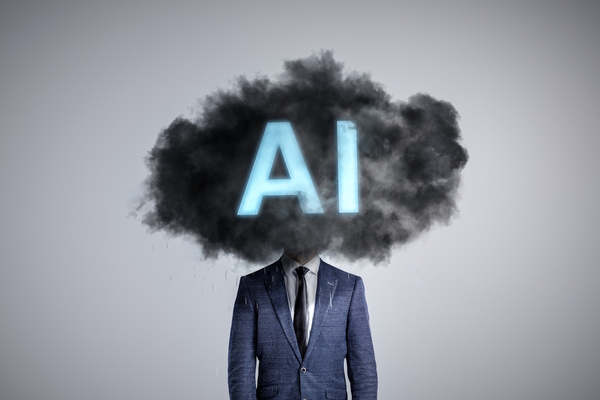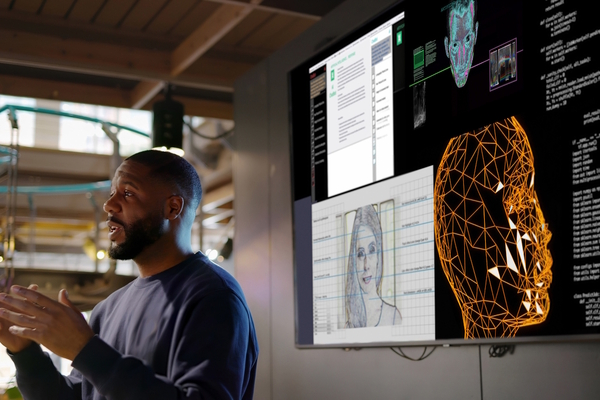How AI improves your hiring decisions
Sponsored by SkillGigsSubjectivity leads to bad hires: Here’s how AI solves that

Multiple studies have shown how flawed hiring decisions can be when they’re based on subjective criteria such as “culture fit”. But nationwide, 79% of HR professionals admit that hiring decisions at their company are made based on subjective factors such as these, all of which are influenced by the unconscious biases of individual hiring managers.
The wrong hires can have serious financial consequences for your company, so eliminating subjectivity from your hiring decisions seems like the best move. But how can you do this, especially when your employees and executives are the ones ultimately making the hiring calls?
The good news is that there is a way to truly remove bias from the hiring process: AI-powered recruitment solutions. The right partner in this area will help you solve your subjectivity problem and bring the right talent on board for you.
The consequences of subjectivity in hiring
The discipline of human resources has often been the site of a long-standing battle between objectivity and subjectivity. Subjectivity excels when, at the right times, we need to lean into our emotional intelligence to offer the right support, the right guidance and the right decision.
But often, our emotional intelligence, which is backed by our own personal histories, can carry an indirect bias – or even sometimes, unfortunately, a direct bias. According to the annual Global Hiring Survey by HireVue, over a third (38%) of hiring teams make hiring decisions based on gut instinct, and just under a third (31%) hire based on personal connections. That means one in three hires may simply be placed based solely on subjective, non-qualifying reasons instead of the candidate’s actual skills and abilities.
When subjective factors such as this are used to screen job applicants, interview them and even promote them within your company, this ultimately dilutes your talent pool and leads to bad hires – and the consequences of mishires can be dire. According to hiring expert Dr Bradford Smart, the estimated cost of a worker who quickly finds they are a bad fit can be anywhere from six to 27 times the amount of the person’s actual pay, depending on their role and responsibility level.
Meanwhile, once those mismatched hires depart and your company resumes the search for their replacement, you start losing even more money. CareerBuilder estimates that employers lose more than $14,000 on average for every job that stays vacant for three months or longer, and this cost can be upwards of $25,000 for more advanced positions.
Finding balance with AI
Admit it, you may have some unconscious bias yourself against the idea of using AI in hiring. However, while it may have its flaws when used incorrectly, the right AI partner can help you do important work in HR to remove bias in your hiring practices.
A comprehensive study from McKinsey points out the various flaws that still exist in AI when it’s used in HR – but also highlights how it really depends on the data points an algorithm is given. Many HR technology companies, including AI-powered talent marketplace platforms such as SkillGigs, are introducing companies to the most effective data points to use when making hiring decisions – namely, skill sets and licenses required for a job instead of traditional educational credentials or other background factors.
68% of recruiters agree that using AI in the recruitment process, particularly in the early stages of hiring, helps remove unconscious bias and build a more diverse, inclusive workplace that refreshes your company’s strategies. Furthermore, many people, including your workers, trust AI more than you think. A 2019 Oracle study found that 64% of workers trust a robot’s decisions more than their human manager’s.
There are many ways AI can remove subjectivity and improve your hiring, but the three main areas of benefit are sourcing, interviewing and onboarding. Here is how the right AI partner will help you solve your subjectivity problem and bring the right talent on board for you.
Sourcing
Companies that are continuously hiring for the same type of job, with in-demand skills for a variety of projects with finite start and end dates (for example, a web developer) need a steady stream of candidates. The right AI talent marketplace can become your sourcing engine, recruiting for you 24/7. There is no staffing agency on this planet that can both source nonstop while still providing the best talent based on the skills you are looking for.
On the flipside of this equation, candidates are more impressed and likely to respond positively when they feel a job opening was written with a thorough understanding of what the job requires and what skills they possess. The right AI partner helps employers do this by presenting a more accurate picture of the skills needed for a job, which helps them write better job descriptions and get matched with candidates they might have erroneously screened out otherwise.
One example of this in action: When one of our employer partners, a major US retailer, listed 40 job postings in our talent marketplace, they received a 60% response rate to their openings from candidates who were automatically matched with them based on their skill profiles, not other subjective factors such as where they got their degree. One third of these responses resulted in successful hires. This volume-to-speed-to-hire ratio, when compared with the slower average response rate from a traditional job board, highlights the true power of AI when deployed well in hiring.
Interviewing
AI in resumé screening helps you find qualified candidates, conduct candidate assessments, and accelerate the hiring cycle. It can help you gather data on employees in similar roles and prepare the right questions for hiring managers.
It also gives you market data to help you determine what a competitive compensation package might be for a given role, allowing clarity from the start when interviewing candidates – something your talent pool will truly appreciate. For example, once a candidate and employer are matched in SkillGigs, the employer can open the interview process in a unique, impactful, transparent way by submitting a compensation “bid” to the candidate – the opposite of the traditional “leave the candidate guessing until the formal offer and then spend time on pay negotiations” method.
AI has the added benefit of saving your HR team time and resources by making candidates more self-sufficient and proactive. The AI built into our platform allows candidates to schedule and reschedule interviews themselves, sends reminders about interviews to both hiring managers and candidates, and provides busy hiring managers and candidates with important information about each other.
Onboarding
Getting your onboarding process right is critical for retention. According to a survey of 34,000 employees by the Work Institute, around 40 % of new hires quit within the first year. The reason in more than three-quarters of these cases is ineffective onboarding.
Managers get busy, and sometimes there are cultural barriers or communication breakdowns that prevent them from training their new hires effectively. However, AI-powered recruitment solutions offer digital assistants such as chatbots who can communicate with newly hired employees and ensure that they complete their tasks. They can also provide guidance on what to do next, and help employees quickly get the answers they are looking for without having to scour various documents or web pages that take up valuable work time.
AI can also help track and maintain up-to-date records on credentials and other key documents. This is especially important in the healthcare sector, where travel nurses and other contingent workers need up-to-date credentials for whichever state they are working in. For example, SkillGigs’ talent marketplace platform allows talent to upload their credentials once and reminds them when updates are needed, so all is current when it is time to onboard for a new job – and our built-in digital assistants can recommend job-related learning courses to help candidates upskill and stay in touch with the latest trends.
The main takeaway from all this? Relying solely on subjective human judgment when sourcing, interviewing and onboarding new employees is costly. But AI-powered recruitment solutions can help reduce subjectivity and help you find the right talent match the first time by removing unconscious bias from every step of the process and helping you implement truly fair hiring practices.
To learn more about how an AI-powered talent marketplace can improve your hiring, visit skillgigs.com.

Business Reporter Team
Most Viewed
Winston House, 3rd Floor, Units 306-309, 2-4 Dollis Park, London, N3 1HF
23-29 Hendon Lane, London, N3 1RT
020 8349 4363
© 2025, Lyonsdown Limited. Business Reporter® is a registered trademark of Lyonsdown Ltd. VAT registration number: 830519543





